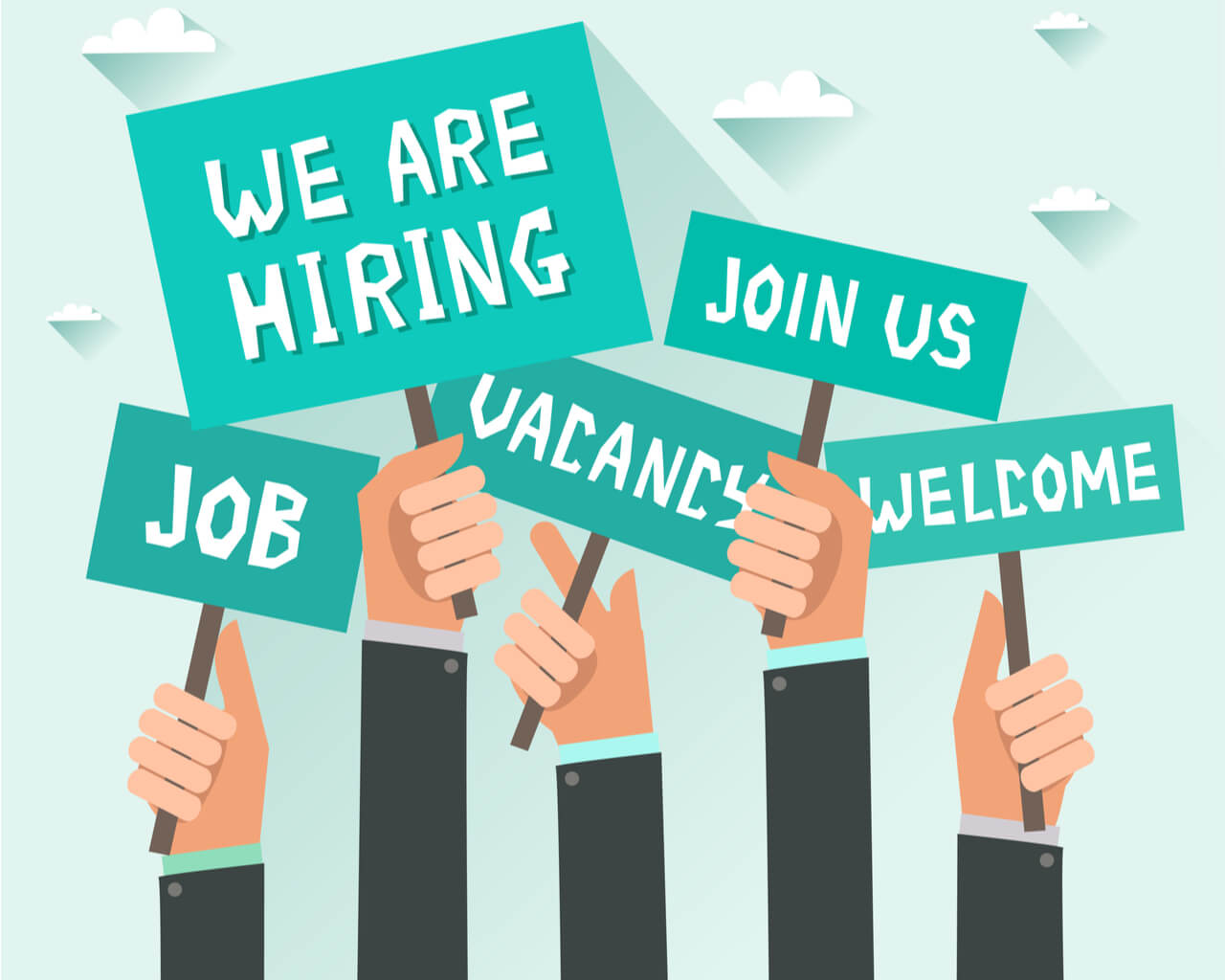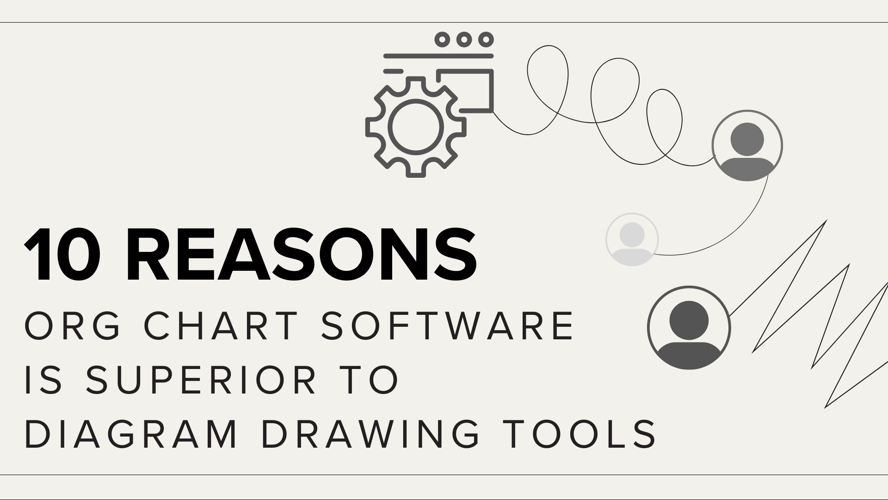“Ghosting? What’s that?”
“You know, like when you go on a date to meet a guy, and it goes so well, but then he disappears, and you’re left thinking ‘omg, he’s not texting me back! Is he dead? Is it me? What did I do?!’ Get it?”
“Oh yeah! That was me last week. Why didn’t you say it like that?”
We’ve all experienced it in different ways. Unfortunately, I’ve done it to my friends where I receive a text and don’t respond until a decade later (sorry guys). It can even feel like an Applicant Tracking System sneakily avoiding you altogether.
Whether it’s in the dating world, within friendships and family, it’s bound to creep in, but for this topic, let’s focus on the workplace.
“Nice to meet you…and goodbye”.
Have you ever had a candidate vanish, to never see the light of day?! Maybe a bit too dramatic, but you get where I’m coming from. Or worse, they ace the interview, go through several rounds of further interviews, they answer all your calls and emails and are so ecstatic once you tell them they have been successful. The first day comes. No show. You’re concerned. You call them. No answer. Email. No reply. You then start to worry. Maybe they got into an accident? Has someone passed away?
Yeah, no, that’s not the reason at all. They have ghosted you; ‘the act of disappearing without notice and cutting off all communication.’

But why? Why is this happening and becoming the norm in our society? Employers eventually get the message that an employee has ghosted/quit after several days of no show, and failure to respond to missed calls and emails – another one bites the dust.
I used to work in the hospitality industry, and on one occasion someone started their first day and right after that, they never came back. I overheard my manager at the time tell an employee so casually; as if it was normal behaviour; that the employee hasn’t been coming to work, so they’re looking for replacements. He calmly walked away with no apparent shock at the disclosure of information. Ghosting is normal.
Block. Delete. Unfriend. Reject.

To answer the question of why – it can be explained like this. People dislike conflict and prefer to avoid that awkward conversation one must have when it comes to saying that guilt wrenching word of: ‘no’. Candidates can even pick up this bad habit from recruiters themselves who have failed to get back to them.
Prime example. I once applied for a job and received an email to inform me of my success in getting an interview. Amy* told me of the time and place and even wrote in the email that if this was unsuitable to let her know, so she can rearrange it. I had to work at the time and couldn’t get it off, so naturally, I requested a different day. No reply. I called the office and left a message. No callback. I called again and spoke with the receptionist and asked her to inform Amy* that I am still yet to receive her email and am looking forward to the interview. I had become a victim of the ‘ghosting’, and yep I was quite angry; flustered may sound a bit nicer. Okay, I was pissed. Moving on!

Certain factors support the shocking statistic that 50% of candidates don’t come in for their interview or first day.
“Most don’t even call, or email. They just don’t turn up” says Tiana Novelli, Director at Just For Kids Kellyville. “When I try to reach [out to] them after they’ve expressed interest, via sending their resume, they seem keen and then never show [up] and don’t respond to contact after they ghost me”.
Like so many industries it can be hard finding a particular type of candidate. In Tiana’s industry of early childhood, it can be difficult in recruiting teachers, where even once they do seek out promising candidates, that individual rarely makes an appearance.
“I have had interview after interview booked over the past few months, and 4/10 are likely to show up”.
Is that you Casper?

Or more along the lines of, ‘you can’t be Casper!’ At least he was a sweet and kind ghost, who would reject a job professionally; no ghosting nonsense. Now, there are several reasons why candidates are ghosting recruiters. Apart from picking up the habit from recruiters themselves, another reason is the inexperience, and ‘misfortune’ candidates may feel they have to endure when it comes to facing awkward conversations. Why deal with conflict face to face when today’s generation is always huddled behind a screen. If you can block people on social media, can’t you do the same metaphorical act when it comes to avoiding recruiters? Yes, you can, and they do.
With the rise in job openings, many candidates are getting multiple offers. They can feel overwhelmed and take jobs without thinking about it. Next thing they know, a bigger and better offer is handed to them, and they can’t resist. When candidates are open to job offers, they have the open field to see which proposal has a better deal and is more attractive; especially when it comes to the salary.
What does your company offer?
What benefits do you offer candidates compared to your competitors? Maybe you haven’t made the cut because of that. It can all seem ridiculous, believing that you have to pay more or offer more benefits simply so new talent don’t run away. It can even stem down to your work culture and employee engagement. According to a CEB survey, 4 out of 5 candidates have said that the ‘candidate experience is an indicator of the type of treatment they will receive at the organisation’.

It comes to no surprise that with poor onboarding, and the lack in detail of the job description can impact how often you have candidates and employees ghost you. I once had a meeting where they told me what my job would entail, my position, responsibilities; you know the drill. On my first day, this was not the case. I was performing tasks that were not in my job description, and it got to a point within my first TWO days that I applied for another role. Within two weeks I was planning on starting my new job. Side note: I didn’t ‘ghost’ them, as I did speak to my manager at the time and expressed my concerns and pointed out I had other job offers. Things changed pretty soon after that. I was lucky, and in a way so were they.
Admittedly, I’ve done it too…
I did ghost an internship once. Not my proudest moment as a former student, but at the time it felt right. Again, I was informed about what my role would entail and what responsibilities I had been bestowed. Complete opposite once I started. I was very bored and genuinely believed it was a waste of my time. Really, I wasn’t learning anything, and even though the little voice in my head was saying ‘stay, it’s a good opportunity, think of your resume, think of your mother killing you once she finds out’, I didn’t listen. I ghosted, and when they would call and email me, I pretended to be unwell and soon ended contact. To this day, I still regret my decision, but I’m glad I’ve grown and now know the value of hard work and sacrifice.

Other reasons why candidates can ghost you include their lack of loyalty and obligation to the company. Within their first few days they haven’t left their mark yet, so leaving now and cutting contact can feel safer and won’t impact the company; unlike if they were working there for several months.
What about the recruitment process? Glassdoor reports that the slowest job offer can go up to 60.3 days. Would you wait 60 days to finally get offered a job you applied for a couple of months ago? I once started a role and several months later got called in for a job interview for a position I applied for months prior. A bit late for that. I even found it interesting when I was receiving rejection emails months after I sent applications for roles. It made me wonder – “it takes them that long to hire someone?”.

Is it a ‘millennial’ thing?
And of course, there’s the millennial mindset of individualism. The millennial generation has tagged ghosting (I’m part of that generation…you’re still reading this blog right?), and within society, people hear the word millennials and instantly recoil in disapproval. Millennials are called lazy, sensitive, spoiled, indecisive, obsessed with their technology and getting ‘likes’. They are even called stupid and are seen as people who don’t know the meanings of hard work (disagree on that one; obvious reasons). Aside from all that, millennials are people aged between 18-34 years of age, who want certain things in their workplace because quite frankly they can.
Nowadays it’s more common to work from home and not spend hours and hours in the office. Steve Browne, vice president of HR at LaRosa’s Pizzeria and Italian restaurant and Society for Human Resource Management board of director, has said in an SHRM article that ‘workers are thinking of themselves as free agents. Candidates owe us nothing. This whole idea of loyalty and professionalism is archaic; [where] the traditional thought process of ‘I apply for a job, I interview for a job, I get hired, and I start the job’—those days are over,’ he said.
Who you gonna call? Ghostbusters!
You’ve read examples and reasons on why candidates are ghosting recruiters. Do you agree or disagree? Perhaps now it all makes sense, and you’re thinking of strategies to reduce your dropoff rates and your ghosting encounters. Now it’s your time to be your version of the classic 80s film; to some degree. Here’s how you can help to prevent ghosting within your company.

1. Always be prepared.
Take in as many applicants as you can. You may only have one role available, so lock in 10 interviews. The more, the better. With ghosting presenting itself primarily in the retail and hospitality industry, recruiters should always be on the lookout for candidates. Keep interviewing and meeting talent, keep it at a constant flow. You never know who will ghost you and who will stay. In regards to the hiring process, keep it short and do it quick. Don’t wait to lock in a candidate, as it’ll help keep your new employee from floating away, and also beat your competition in securing the best talent.

2. Communicate and connect.
Stay in contact. Confirm your interview and even call the applicant the morning of the meeting. Email is convenient, and you can express to your applicants how you’re looking forward to meeting them. You should stay in contact from the moment they apply for the role up until past their first day. Technology is an excellent tool for this, where recruiters can keep in touch with employees and keep up to date with their onboarding. Brown makes sure that he sets the expectations of the role and allows his candidates to know more about the culture and environment of their workplace. ‘Have candidates tour the workplace, let them see what the job is and who their colleagues will be, and make them feel at home. That way it’s not an interview about the culture; it’s a peek inside the culture’.
Job seekers also want to know the benefits and compensation. Be honest and upfront in the interview and onboarding process. The notion is that if recruiters are reliable and can connect with applicants, it can lower the risk of ghosting, as candidates will feel more comfortable and safe in addressing their concerns and why they want to leave.
3. Stay engaged.

A candidate has accepted your offer. Now they have to wait. Don’t stop the onboarding process after they’ve agreed. Keep in contact and continue this for several weeks until they start. Introduce them to the team, perhaps do a uniform fitting and show them the ins and outs of the role and workplace.
My first pre-onboarding day when I worked at a casino was pretty awesome. It was an all-day event. I got to meet new candidates, and we got a tour of the entire venue. Uniform, lockers, security measure, staff meals, management, a presentation of my new role, it was all there. Another past position kept in contact through applications, where I got to complete training before my first day. Calls, emails or face-to-face; whichever method works for you and your company, try it and see the difference it’ll make.
Is it over?
A lot of information and personal experience later, I can finally conclude in saying that the word ghosting may eventually fade away with all the other trends and words that we hear and soon forget about. On the other hand, the act of ghosting may always remain.

As recruiters, it’s good to get back to applicants even if they had an interview and it failed. Offer feedback and criticism, as it can help prevent the domino effect of ghosting. It will also prevent the circulation of a bad reputation amongst future candidates. As for all you candidates, remember that you never know who you will meet and work within the future. It may seem acceptable and non-conflicting to ghost a recruiter, but who’s to say that in a few years that person and company has the power to hire you for your dream job. Keep good contacts; this is for recruiters and candidates.
Maybe a good practise run can start in your dating and social life. If you don’t like the guy just tell him, poor bloke has probably stressed enough in his life. Once you’ve perfected that, ghosting won’t even be a problem. Don’t want the job? No thank you. Don’t like the applicant? Thanks for trying. Honesty is the best policy.






Blog comments